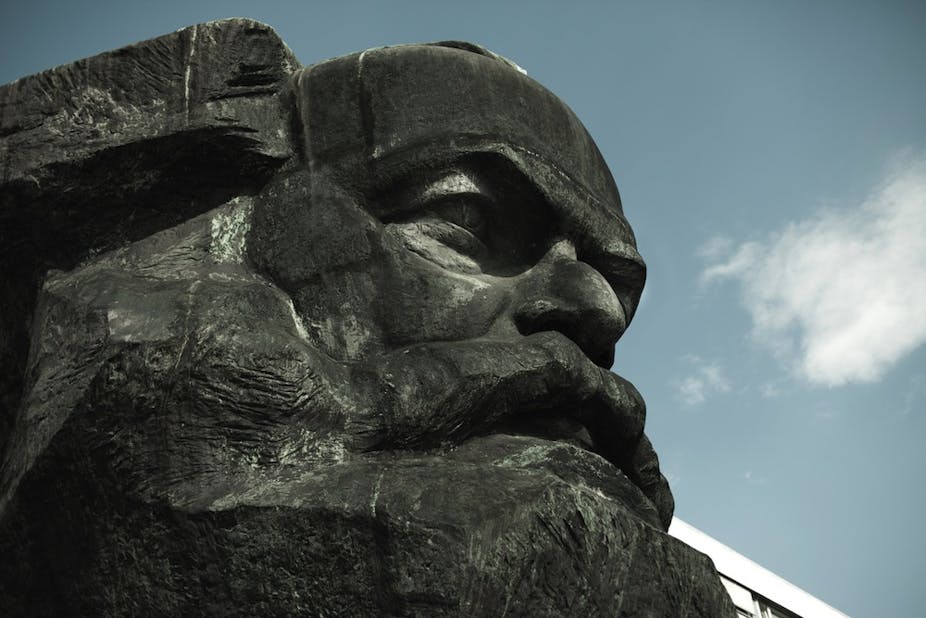Thomas Piketty’s recent book on the long-term patterns in wealth inequality, Capital in the 21st Century, has ignited a passionate debate both within academia and, perhaps more interestingly, the wider public sphere. As well as featuring in most major newspapers and magazines worldwide, Piketty now has the dubious honour of appearing in First Dog on the Moon, albeit as a marmot.
While almost everyone seems to agree that Piketty’s work is a valuable and timely contribution to the debate on inequality, there is a lingering sense of confusion about why this book in particular has grabbed the public’s attention. In order to understand this phenomenon, it might be helpful to look back a few hundred years, at the most famous dismal scientist of them all, T. R. Malthus.
Malthus was, and is still, famous for his slightly depressing comments on humanity’s inability to provide for a growing population. What is particularly interesting though is that despite these ideas not being hugely original or even very surprising, Malthus became something of a household name in the 19th century, at least more so than any other economist at that time.
One reason for Malthus’ unusual fame was simply good timing. At the beginning of the 19th century the British public were increasingly concerned with the overcrowding of Britain’s cities, and combined with decades of low agricultural wages and a damaging war with France it’s no surprise that Malthus’ pessimism struck a chord.
It’s easy to see the parallel with Thomas Piketty today, who many see as finally providing proof of capitalism’s inherent flaws as argued vocally by the Occupy movement. And once again the timing is everything; Piketty and his colleagues have been working on the World Top Incomes Database since well before the financial crisis and subsequent recessions, but his book now seems perfectly timed in response to growing public disenchantment with the theory of “trickle down” economics.
Another reason for the popular success of Malthus’ theory in the 19th century was its simplicity. Economics is today (in)famous for its enchantment with models that simplify messy reality into neat, mathematical language. Malthus’ model stated that while population was capable of growing exponentially (for example doubling every generation), the food supply could only grow at an arithmetic rate (adding a fixed amount every year).
The dismal prediction of this model is of course that population growth will push against natural constraints, unless checked by prevention or higher mortality. Malthus’ model was one of the first in the history of economics, and he was quickly celebrated as well as ridiculed for his famous “ratios”.
Here again we can see a parallel with the public reaction to Piketty’s work. Over the last few decades it has become increasingly obvious that income inequality has been rising, with no end of data to back up this claim. But Piketty’s book does more than just describe new data, it provides a simple, striking model for why the modern economic system inevitably leads to growing inequality.
Just as Malthus’ theory of population was distilled down to the ratio of population growth to agricultural productivity, the main argument of Piketty’s impressively large book is being summarised in reviews and articles everywhere as the ratio of “r”, the return to capital, to “g”, the growth in labour income, or more simply, economic growth. And as with Malthus the inevitable consequences of an imbalance between these two numbers is predictably dismal.
The final parallel between our 21st and 19th century economic rock stars is that they both not only neatly describe the problem facing society, they are good enough to suggest a solution. Malthus’ solution to the population problem was more education for the lower classes, as well as less generous provision of welfare, which he saw as an incentive to reproduce. This last proposal was unsurprisingly controversial and unpopular, and in the newspapers of the time we can see the evidence of the public’s outrage.
Piketty’s proposals, which broadly consist of higher taxes on wealth and income, are unsurprisingly just as controversial, with equally passionate support and opposition. Once again timing matters; there is a willingness and desire today to discuss these kinds of policies, although it will be a bitter and divisive debate (although it is interesting that Piketty’s reception in France has been more muted).
Piketty is not the first economist to shoot to fame, and he won’t be the last. It is important to try and understand why certain economic ideas enrage or excite us, as these ideas will shape the public debate, influence policy making and inevitably impact the way our economy (and society) functions.

